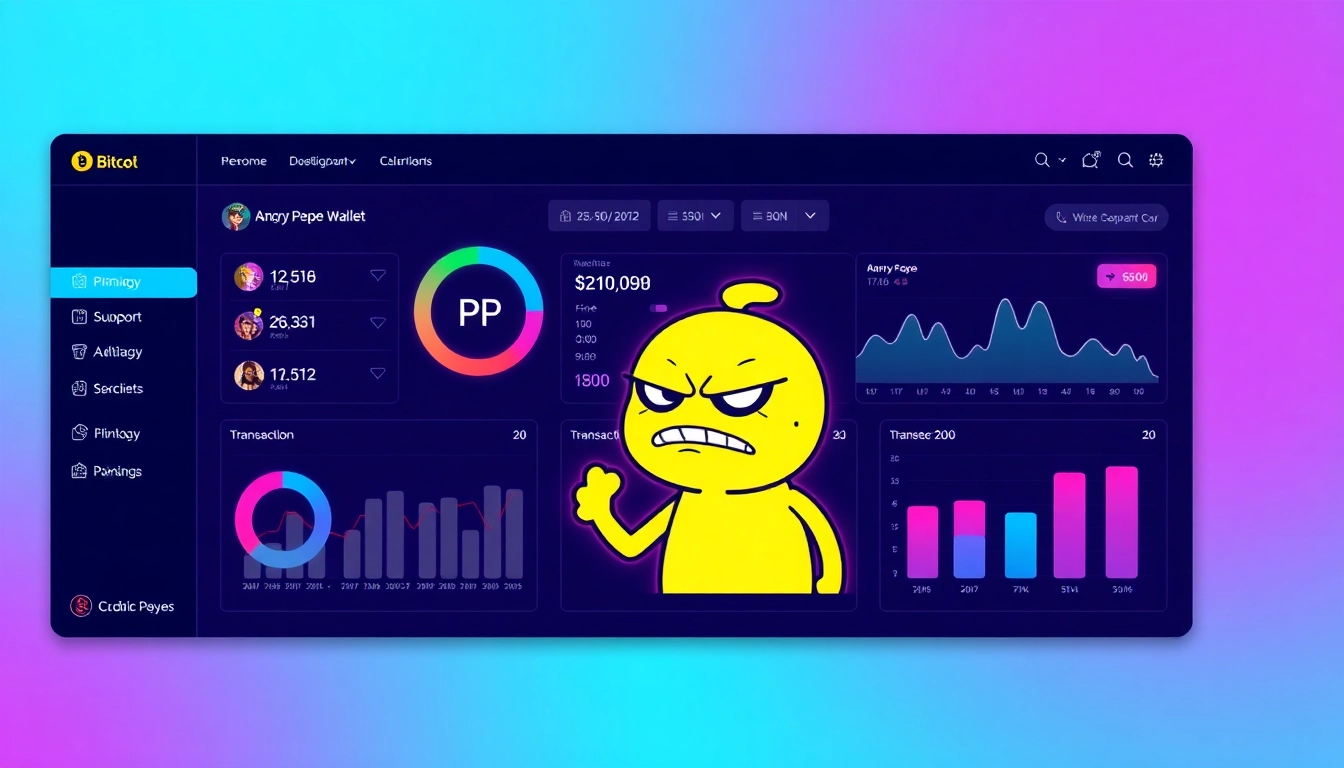Mastering Online Trading in the UK: Essential Strategies and Insights for Investors
In recent years, online trading has revolutionized the way individual investors participate in financial markets across the UK. With an ever-expanding array of platforms, tools, and resources, traders of all experience levels can access global markets from the comfort of their homes or on the go. Whether you’re a beginner seeking a straightforward entry point or an experienced trader aiming for advanced strategies, understanding the core principles of online trading is vital. For those eager to deepen their knowledge and enhance their trading effectiveness, exploring comprehensive guides on Online Trading UK can provide invaluable insights into navigating this dynamic landscape.
Introduction to Online Trading in the UK
Understanding Basic Concepts and Terminology
Before immersing yourself in the world of online trading, it’s crucial to grasp foundational concepts and terminology. Key terms include assets like stocks, ETFs, options, and forex; order types such as market orders, limit orders, and stop-loss orders; and trading strategies ranging from day trading to long-term investing. An understanding of leverage, margin, spreads, and liquidity is equally important, as these factors influence risk and profitability. Familiarity with trading platforms and charts helps traders interpret market movements and make informed decisions.
Regulation and Safety for UK Traders
The UK’s financial markets are rigorously regulated to ensure investor protection and market integrity. The Financial Conduct Authority (FCA) oversees and authorizes numerous online brokers, mandating strict compliance with safety standards, such as client fund segregation and transparent fee disclosures. Choosing FCA-registered platforms ensures your investments are protected against insolvency or unfair practices. Additionally, UK traders benefit from protections like the Financial Services Compensation Scheme (FSCS), which covers eligible losses up to £85,000 per person, providing an extra layer of security for your trading capital.
Choosing the Right Trading Platform
Selecting a fitting trading platform is foundational to success. Factors to consider include usability, fees, range of available assets, research tools, and customer support. Top UK platforms like Trading 212, IG, and Interactive Brokers offer diverse features tailored for different trader profiles. For beginners, platforms emphasizing intuitive interfaces and educational resources are ideal, while experienced traders may prioritize advanced charting tools and direct market access. It’s essential to evaluate demo accounts and undertake due diligence to identify the platform that aligns with your trading goals and risk appetite.
Top Strategies for Successful Online Trading in the UK
Fundamental Analysis for UK Markets
Fundamental analysis involves assessing the intrinsic value of assets based on economic indicators, corporate earnings, and market conditions. For UK traders, this includes monitoring economic reports such as GDP growth, inflation rates, and employment data, while also analyzing company financial statements and industry trends. Political events like Brexit negotiations and government policies significantly impact market performance. Successful traders integrate these macroeconomic factors with industry news to make informed buy or sell decisions, helping to anticipate long-term price movements.
Technical Analysis and Chart Patterns
Technical analysis focuses on historical price data and chart patterns to forecast future market directions. Popular tools include candlestick patterns, trend lines, and technical indicators like Moving Averages, RSI, and MACD. Recognizing formations like head and shoulders, double tops/bottoms, and trend continuations empowers traders to time entries and exits effectively. Mastery of technical analysis enables quick decision-making, particularly vital in volatile UK markets or during earnings seasons.
Risk Management and Setting Stop-Loss Orders
Effective risk management is essential to protect trading capital and ensure longevity in the markets. Setting stop-loss orders helps limit potential losses by automatically closing positions at predetermined levels. Diversifying across assets reduces exposure to individual risks, while position sizing strategies prevent overleveraging. Experienced traders also implement trailing stops to lock in profits as prices move favorably. Consistent risk management discipline minimizes emotional decision-making, fostering more stable and profitable trading routines.
Tools and Resources for UK Traders
Best Trading Platforms and Apps in the UK
The landscape of trading platforms in the UK is rich with options, catering to varying needs. Platforms like Trading 212, Freetrade, eToro, and Interactive Brokers offer features ranging from commission-free trading to social trading and advanced analytics. Mobile apps enable trading on the move, providing access to live quotes, news feeds, and real-time charts. Analyzing platform reviews and utilizing demo accounts help traders select the best tools tailored to their skill level and strategic requirements.
Educational Resources and Courses
Continual education is key to adapting to market shifts and refining trading skills. Many providers, including the London Academy of Trading, offer accredited online courses covering technical analysis, trading psychology, and strategy development. Free resources such as webinars, blogs, and e-books complement formal training. Staying informed about market fundamentals and technical insights ensures traders can make confident and educated decisions, reducing the likelihood of costly mistakes.
Market News and Data Sources
Timely access to accurate market news and data is vital for responsive trading. Reputable sources include Bloomberg, Reuters, and the London Stock Exchange. Real-time market dashboards, economic calendars, and earnings reports provide actionable information to capitalize on emerging opportunities. Utilizing data analytics and news alerts allows traders to stay ahead of market movements, especially during high-volatility periods or major geopolitical events impacting UK markets.
Overcoming Challenges and Common Mistakes
Emotional Discipline and Trading Psychology
Market volatility can trigger emotional reactions like fear and greed, often leading to impulsive decisions. Developing discipline through systematic trading routines and maintaining emotional composure are critical. Techniques such as journaling trades, setting clear goals, and adhering to predefined strategies help mitigate psychological pitfalls. Cultivating patience and accepting losses as part of the learning curve foster a resilient mindset, vital for long-term success.
Common Pitfalls and How to Avoid Them
Common errors include overtrading, neglecting risk management, and chasing losses. Overtrading often results from emotional trading or the desire for quick profits, leading to significant losses. To avoid this, establish clear trading plans and criteria for entering and exiting positions. Similarly, risking too much capital on single trades or ignoring stop-loss orders can be detrimental. Regularly reviewing trading performance and learning from mistakes helps refine practices and build sustainable strategies.
Developing a Consistent Trading Routine
A disciplined routine involves scheduled analysis sessions, routine risk assessments, and continuous learning. Successful traders dedicate specific times for market review, strategy backtesting, and performance evaluation. Consistency helps develop intuition and a better understanding of market patterns. Using analytical tools and maintaining a trading journal supports ongoing improvement and adaptation to changing market conditions.
Monitoring Performance and Growing Your Investment Portfolio
Tracking Your Trading Results Effectively
Regular performance tracking allows traders to identify strengths, weaknesses, and areas for adjustment. Using comprehensive trading journals, software, or platform-integrated analytics provides metrics like profit/loss ratios, win rates, and risk-reward profiles. Setting benchmarks and reviewing trades weekly or monthly helps maintain accountability and facilitates strategic improvements.
Adjusting Strategies Based on Market Trends
Markets are dynamic, requiring traders to adapt strategies as conditions evolve. This involves monitoring macroeconomic indicators, seasonal patterns, and market sentiment. Incorporating quantitative models or machine learning tools can provide additional insights. Flexibility in approach and continuous testing are essential to stay ahead of competitors and exploit new opportunities.
Long-term Growth and Diversification
Beyond short-term trades, building a diversified portfolio across asset classes—including stocks, bonds, and commodities—helps mitigate risk and generate steady growth. Reinvesting earnings, utilizing tax-efficient accounts like ISAs, and maintaining a disciplined savings plan further enhance wealth accumulation. Long-term investing practices supported by fundamental analysis foster sustainable financial health and resilience against market downturns.



